Results
-
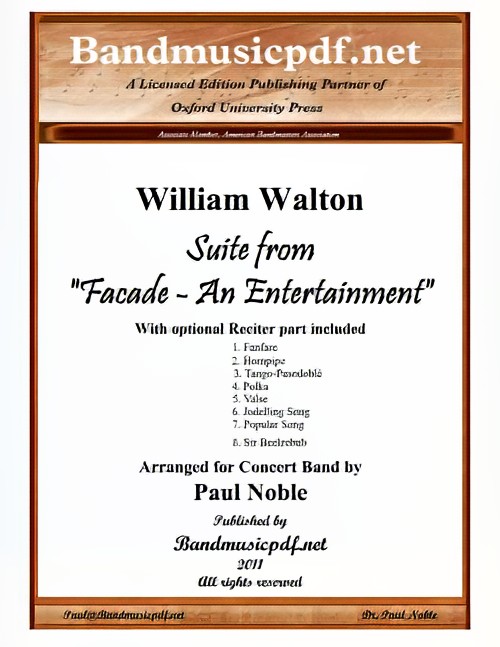 £375.00
£375.00Facade - An Entertainment, Suite from (Concert Band with Optional Narrator - Score and Parts) - Walton, William - Noble, Paul
This Suite from Facade - An Entertainment, composed by William Walton, with poems by Dame Edith Sitwell, presents for the first time a grouping of movements selected and arranged by Paul Noble for Concert Band and optional Reciter. The original composition was written between 1921 and 1928, containing forty-three numbers. They had their origin in a new style of poetry that Edith Sitwell evolved in the early 1920s, poems that her brother Osbert later described as 'experiments in obtaining through the medium of words the rhythm and dance measures such as waltzes, polkas, foxtrots... Some of the resulting poems were sad and serious... Others were mocking and gay... All possessed a quite extraordinary and haunting fascination.' Possibly influenced by the dance references in some of the numbers, Osbert declared that the poems might be further enhanced if spoken to a musical accompaniment. The obvious choice of composer was the young man who lived and worked in an attic room of the Sitwell brothers' house in Carlyle Square W[illiam] T[urner] Walton, as he then styled himself. The now historic first performance of the Facade Entertainment took place in an L-shaped first-floor drawing-room on January 24, 1922. Accompaniments to sixteen poems and two short musical numbers were performed by an ensemble of five players. The performers were obscured from the audience by a decorated front curtain, through which a megaphone protruded for Edith to declaim her poems. This was, as she put it, 'to deprive the work of any personal quality'. The first public performance of Facade was given at the Aeolian Hall on June 12, 1923. By now, fourteen poems had been set, others revised or rejected, and an alto saxophone added to the ensemble. The occasion gave rise to widespread publicity, both pro and contra, and the name of the twenty-one year old W. T. Walton was truly launched. In the ensuing years the Facade has gone through revisions and additions, with full orchestral arrangements of selected movements being made without the Reciter. Former Band Director Robert O'Brien arranged some movements for band, again without Reciter, which are now out of print. So this 'history making' addition is the first opportunity for Concert Bands to present some movements of Facade with poems as originally intended. The luxury of electronic amplification allows the full ensemble to perform without necessarily overshadowing the Reciter. And the arrangements are written with considerable doubling so that the ensemble may play in full, or reduced in size as may be desired for proper balance. And, though not encouraged, the arrangements are written so that the band can perform the music without the Reciter. Program notes are adapted in part from those written by David Lloyd-Jones and published by Oxford University Press in the Study Score of William Walton's Facade Entertainments.
Estimated dispatch 7-14 working days
-
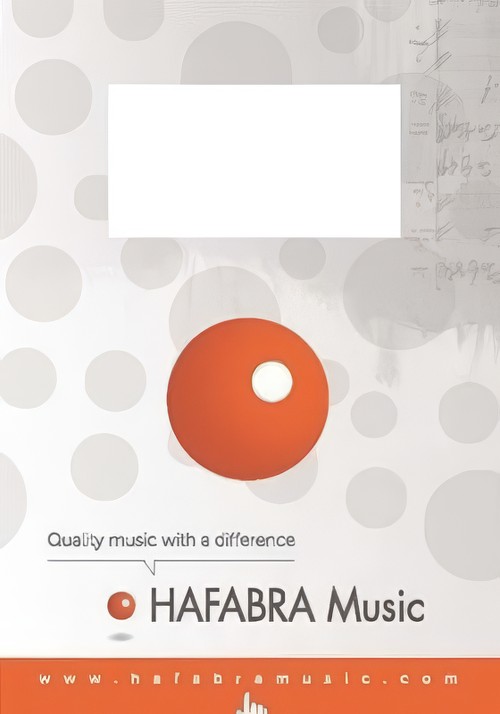 £85.00
£85.00Walking the Dog (Clarinet Solo with Concert Band - Score and Parts) - Gershwin, George - Bourgeois, Derek
Walking The Dog is one of Gershwin's lighter numbers. It is a clarinet showpiece that is just as much fun as the title suggests. Taken from the movie Shall We Dance, staring none other than the great Fred Astaire and Ginger Rogers, Walking The Dog catches George Gershwin at the very height of his powers. Rather than the bustling, complex symphonic scores he was by-now accustomed to knocking out, it's a simple, elegant little stroll, as the title suggests. In fact, in the 1937 film, it accompanies a scene of dog-walking, aboard the luxury deck of an ocean liner. Since its use in the film, though, the song has taken on a life of its own and become a popular showing-off piece for clarinettists everywhere. Interestingly, it's also the only section of score from the whole of Shall We Dance that remains - the rest of the movie's music remains sadly unpublished.Duration: 3.00
Estimated dispatch 7-14 working days
-
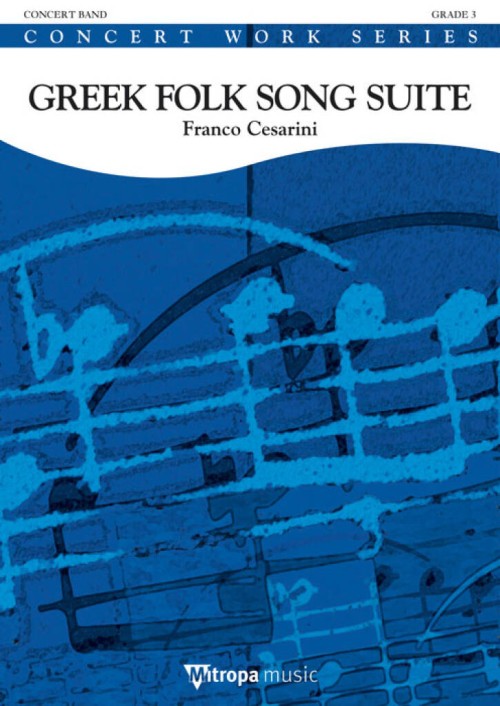 £154.99
£154.99Greek Folk Song Suite (Concert Band - Score and Parts) - Cesarini, Franco
Greek folk music is characterised by the sound of the 'buzuki' which is often used in combination with the clarinet, the mandolin, the violin and various types of tambourines. In Greek Folk Song Suite, Franco Cesarini has elaborated on three songs belonging to this most ancient tradition. The first, O Haralambis, is in 7/8 time, a characteristic of a popular folk dance called kalamatianos. Originally, the song O Haralambis was sung to 'tease' during weddings with the text of the song refering to a young man who refuses to marry. The second movement, Stu Psiloriti, refers to an ancient song from the island of Crete. The third movement of the suite is based on the song Vasilikos tha gino and is characterised by the sirtaki, probably the most popular Greek dance outside of Greece. This is Greek passion portrayed by a concert band!Duration: 9:00
Estimated dispatch 7-14 working days
-
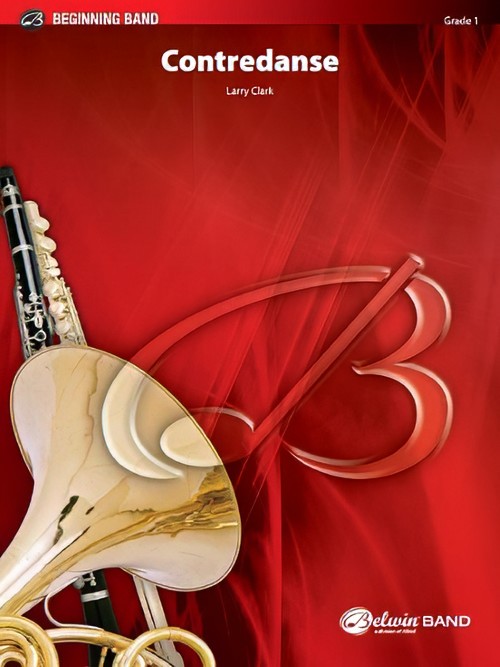 £53.95
£53.95Contredanse (Concert Band - Score and Parts) - Clark, Larry
Today we have 'line dancing,' which in reality is not too different from the 'contredanse' or country dance of the late 18th century. The music accompanying this French dance form was written in eight-measure phrases repeated again and again. Composer Larry Clark gives us the flavor of another era with more contemporary harmonic structuring. Look very seriously at this sophisticated yet audience-friendly new work for your concert band or wind ensemble. Duration: 2.30
Estimated dispatch 7-14 working days
-
 £104.99
£104.99Ballabili (Concert Band - Score and Parts) - Verdi, Giuseppe - Van der Beek, Wil
Giuseppe Verdi's opera Macbeth was written in 1846/47 and premiered in Florence. It is based on Shakespeare's Macbeth and, unlike Verdi's other operas, had relatively little broad impact. This may be due to the difficulty of the singing voices, the lack of a love story or the dark mood, without humorous scenes.Musically, however, this opera is not uninteresting. Among other things, all the dramatic highlights culminate in artistically built ensembles. It also contains interesting instrumental effects, such as a wind orchestra under the stage in the witch scenes. This makes the witches and air spirits seem like from another world. In the 19th century opera, such a wind band, a so-called "banda" was not uncommon but an integral part of the scene.The Ballabili comes from Act III of Verdi's opera MacBeth. Ballabili is the plural of the Italian ballabile, meaning "danceable." It can also mean a dance performed by the corps de ballet, or by the chorus in an opera; or the music to accompany this dance.Duration: 2:15
Estimated dispatch 7-14 working days
-
£154.99
Celtic Concertino Wind Band Set (Score & Parts) - Fraser, Bruce
This little concerto for clarinet was written for Peter Holligan , a friend of its composer, and the Fife Youth Concert Band (Scotland). The work was based on traditional Celtic music, and consists of three movements. 1. Reel - a fast dance ending in an atmospheric but virtuoso cadenza. 2. Lament - a slow and melancholy song hinting at the sound of bagpipes. 3. A fast and virtuoso dance in 6/8 time with Irish influence. The work is a wonderful audience-pleaser and an absolute 'must' for all clarinet-players. The band too is called upon and by all means does have its part to play in the piece. Band grade 4, soloist grade 5. Dit Concertino voor klarinet werd geschreven voor Peter Holligan , een vriend van de componist, en de Fife Youth Concert Band (Schotland). Het werk is gebaseerd op de traditionele Keltische muziek, en bestaat uit drie delen. 1. Reel - een snelle dans die eindigt in een sfeervolle, maar virtuoze cadens. 2. Lament - een trage en melancholische melodie die het geluid van doedelzakken verbeeldt.3. Een snelle en virtuoze dans in 6 / 8 maatsoort met Ierse invloeden. Voor het publiek een heerlijk werk om naar te luisteren en een uitdaging voor de solist(e)! Het orkest ondersteunt deze om het tot een kleurrijk geheel te maken! Orkest graad 4, solo graad 5. 10:00
Estimated dispatch 7-14 working days
-
£94.99
Czardas (Clarinet solo) Wind Band Set (Score & Parts) - Monti, Vittorio
Vittorio Monti was born on January 6, 1868 in Naples (Italy). His musical education (violin and composition), he enjoyed at the conservatory there. Around his 30's Monti went to Paris. He earned a living as a conductor and wrote several ballets and operettas. In his last years, Monti died in 1922, he devoted himself to teaching and composing. His famous "Czardas" has made his name known even today. Initially the czardas was a Hungarian folk dance , but after the mid-nineteenth century it was even a dance for the upper-class. Czardas begins with a slow introduction, the Lassan (slow and sad), and then the fast part, Friska, follows. Czardas is not, as so many people think typical gypsy music. 05:30
Estimated dispatch 7-14 working days
-
£94.99
Czardas (Xylophone solo) Wind Band Set (Score & Parts) - Monti, Vittorio
Vittorio Monti was born on January 6, 1868 in Naples (Italy). His musical education (violin and composition), he enjoyed at the conservatory there. Around his 30's Monti went to Paris. He earned a living as a conductor and wrote several ballets and operettas. In his last years, Monti died in 1922, he devoted himself to teaching and composing. His famous "Czardas" has made his name known even today. Initially the czardas was a Hungarian folk dance , but after the mid-nineteenth century it was even a dance for the upper-class. Czardas begins with a slow introduction, the Lassan (slow and sad), and then the fast part, Friska, follows. Czardas is not, as so many people think typical gypsy music. 05:30
Estimated dispatch 7-14 working days
-
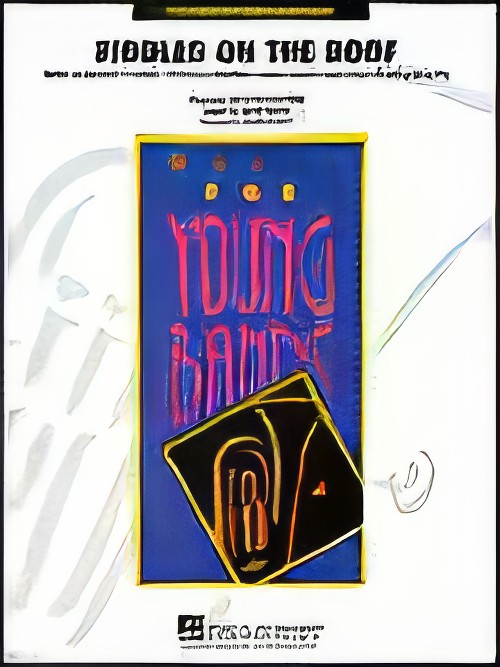 £64.99
£64.99FIDDLER ON THE ROOF (Medley) (Young Band) - Bock & Harnick - Custer, Calvin
Fiddler on the Roof continues to charm audiences worldwide with its captivating music and delightful characters. Calvin Custer's medley for young band features several of the show's memorable songs including: Fiddler on the Roof; Tradition; Sunrise, Sunset; If I Were a Rich Man; and Bottle Dance (Wedding Dance).
Estimated dispatch 7-14 working days
-
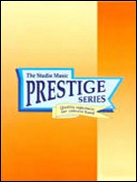 £21.95
£21.95MIDNIGHT IN BUENOS AIRES (Prestige Concert Band Extra Score) - Gorb, Adam
Extra Scores. Since a child, the composer has been fascinated by Latin American rhythms - especially the tango, a dance with strong roots in Argentina. This work attempts to capture much of the darkness, violence, mystery and seductive passion that this dance inspires. (Grade 5) Performance time c. 11 minutes. Recorded on Polyphonic QPRM152D MOSAIC: Great British Music Vol. 13
Estimated dispatch 7-14 working days
